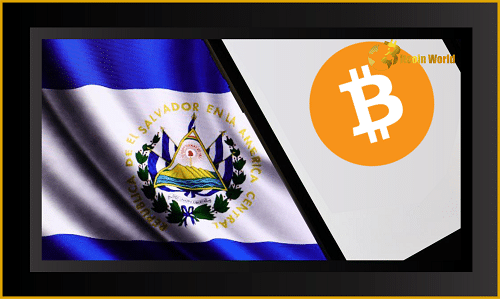When El Salvador declared Bitcoin a legal tender, the cryptocurrency community went crazy. The South American nation became the first to accept bitcoin as legal tender thanks to this action.
The decision made by Bukele is largely regarded as the nation’s first effort to use a volatile currency as legal tender. The International Monetary Fund and leading economists criticized the law harshly.
According to research, after obtaining the $30 incentive, more than 60% of respondents abandoned the government’s Chivo wallet, which is why the spread of bitcoin in El Salvador has stalled. By year’s end, 2.1 million Salvadorans, or 75% of the population, had access to the Chivo wallet.
Additionally, the study indicated that only 3% of respondents used Bitcoin (BTC), and 89% of Salvadorans had never received remittances via the program. Additionally, the poll reveals that 99 percent of participants have never used Bitcoin to pay taxes.
The Struggle Sets In
The unprecedented adoption of bitcoin in El Salvador seems to have suddenly run into trouble. Since reaching a top of almost $69,000 in November 2021, bitcoin has decreased by almost 70%. El Salvador, which is already coping with a severe debt problem, has suffered as a result of the global decline in Bitcoin prices.
The value of the LATAM nation’s investments, which were valued at $105 million for 2,301 bitcoins, has decreased by more than half to about $51 million. The President, a fervent supporter of cryptocurrencies, is nevertheless upbeat. Bukele has occasionally made hints that the nation would purchase additional bitcoin.
Despite Mr Bukele’s optimism, it appears that the adoption of bitcoin is not likely in El Salvador at the moment. According to a recent survey conducted by a university in El Salvador, more than 60% of the population still favours holding dollars over bitcoin.
A quarter also supported El Salvador’s decision to accept bitcoin as legal tender. According to a National Bureau of Economic Research research, little bitcoin is used. Additionally, it primarily affects the population of educated, wealthy men.
In reality, one of the major factors driving the acceptance of bitcoin was to provide the massive unbanked population—roughly 70% of the populace—more influence. One of the most impoverished nations in Latin America is El Salvador. BTC was introduced to the nation with the goal of eradicating poverty. However, amid the crypto winter, bitcoin has made things more difficult financially.
The government of El Salvador is heavily indebted. Its economy has always been reliant on borrowing. The IMF has encouraged El Salvador to reverse its decision to recognize bitcoin as legal money. The US administration has also disagreed with the decision made by the nation.
Of course, we know that Bitcoin could be viable in the long term, but currently, the country isn’t enjoying the bear/winter season.















